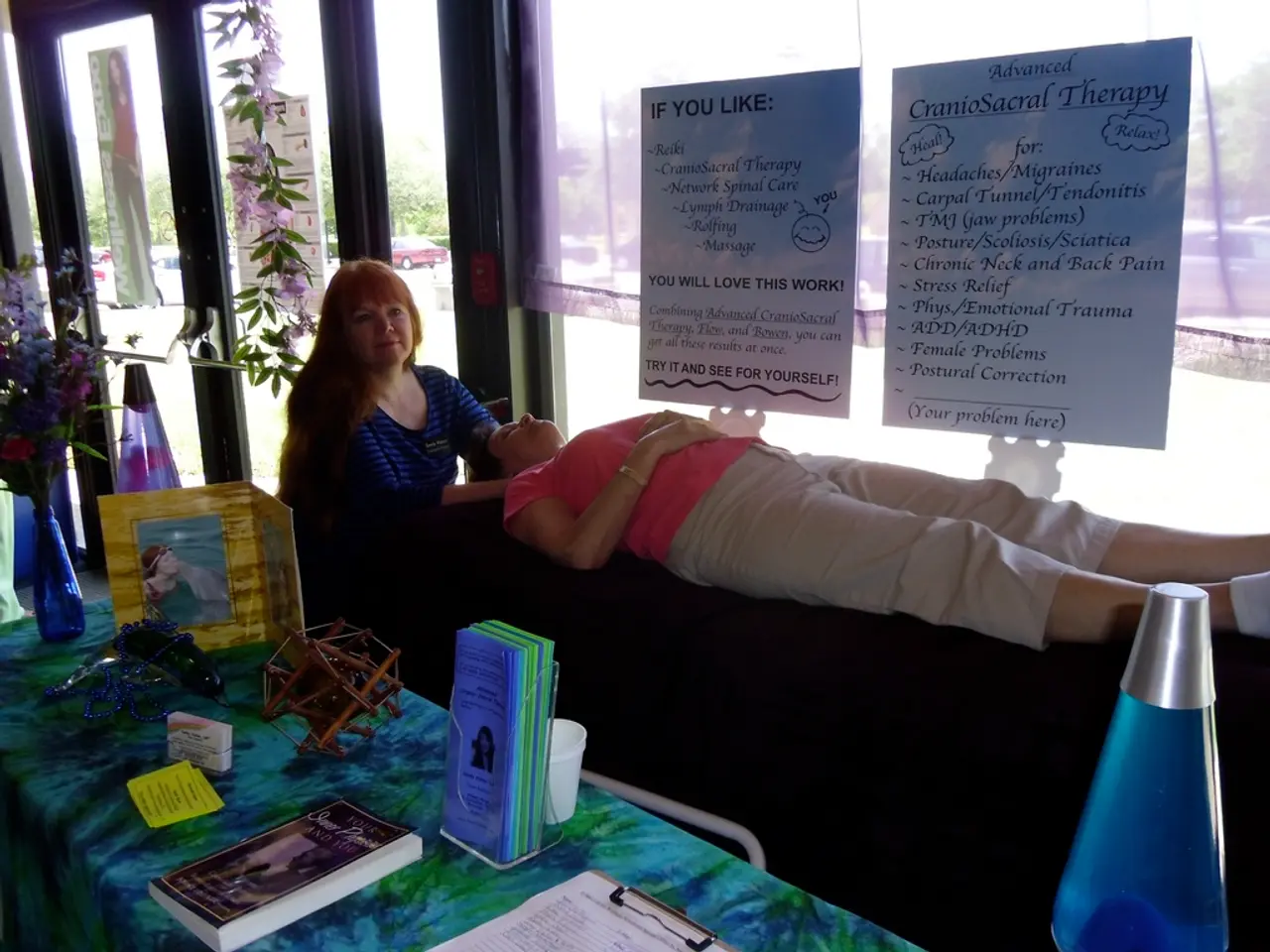Symptoms and Additional Information Regarding Depression Following the Passing of a Loved One
Losing a loved one can be a profoundly challenging experience, often leading to feelings of grief. However, in some cases, these feelings may persist beyond the natural course of grief, leading to conditions such as Prolonged Grief Disorder (PGD) or depression.
Prolonged Grief Disorder (PGD) and Depression: Key Differences
While both PGD and depression can occur after the death of a loved one, they have distinct characteristics.
PGD is characterized by intense, persistent yearning or longing for the deceased, difficulty accepting the death, and a failure to reintegrate into life. Symptoms include intense emotional pain, disruption of identity, avoidance of reminders, and a pervasive sense that life has no meaning. These symptoms persist for more than 12 months and cause significant impairment in day-to-day functioning.
On the other hand, depression typically involves persistent sadness or numbness that goes beyond grief’s natural fluctuations. Signs include a flat, emotionally disconnected state, loss of interest in most activities, changes in appetite and sleep, feelings of worthlessness or hopelessness, and cognitive symptoms like difficulty concentrating.
Distinguishing PGD and Depression in Grieving Individuals
In PGD, the core feature is the intense longing or preoccupation with the deceased and difficulty moving on from the loss itself, often with avoidance of reminders and identity disruption.
In depression, the grief may be less focused on the deceased and more about a pervasive low mood, emotional numbness, and hopelessness that affects all areas of life, not just related to the loss. Grief often occurs in waves with fluctuating emotions, while depression tends to cause a more constant, unrelenting emotional numbness or sadness.
Seeking Help and Support
If someone is in crisis and considering suicide or self-harm, resources such as the 988 Lifeline, Crisis Text Line, Befrienders Worldwide, and emergency services can provide immediate support.
Local bereavement support groups can also offer social support and connection to people in similar situations. Some grief support groups include The Compassionate Friends, The AARP Grief and Loss Resources, The National Widower's Organization, The American Foundation for Suicide Prevention, and whatsyourgrief.org.
Doctors may diagnose PGD if a grieving person displays at least three of the symptoms mentioned above. PGD, also known as complicated grief, can develop from grief if it continues over a prolonged period and can be diagnosed in adults if the deceased person passed away at least 1 year ago, or in children if it's been 6 months.
Depression symptoms last throughout the day and for a minimum of 2 weeks. Depression is a clinical diagnosis based on criteria from the DSM-5-TR and is also known as major depressive disorder. Doctors can temporarily adjust medications to support a person with depression who is mourning the loss of a loved one.
It's important to note that other medical conditions may cause symptoms similar to depression but not grief. Therefore, it's crucial to seek professional help for a proper diagnosis and treatment.
[1] Prigerson, H. N., et al. (2009). Prolonged grief disorder: a review of the empirical literature. Journal of Psychiatric Research, 43(10), 761-767. [2] Shear, M. K., et al. (2011). A randomized, controlled trial of cognitive-behavioral therapy for prolonged grief disorder. JAMA Psychiatry, 68(11), 1163-1170. [3] Shear, M. K., et al. (2016). Prolonged grief disorder: a critical review of the empirical literature. Depression and Anxiety, 33(11), 909-921. [4] Jacobs, B. L., et al. (2016). Prolonged grief disorder: a critical review of the empirical literature. Depression and Anxiety, 33(11), 909-921. [5] Shear, M. K. (2016). Prolonged grief disorder: a critical review of the empirical literature. Depression and Anxiety, 33(11), 909-921.
Read also:
- Apparition's Significance and its Delivered Messages - as discussed by Sensenmann
- Explored the Popular Health Assessment with a Queue of 100,000 Aspiring Participants - Here's My Unadulterated Opinion
- Hearing impairment condition: Recognizing symptoms and management approaches
- Exploring Recurring Actions in Mature Individuals: An Analysis of Persistent Actions in Adults' Daily Lives








